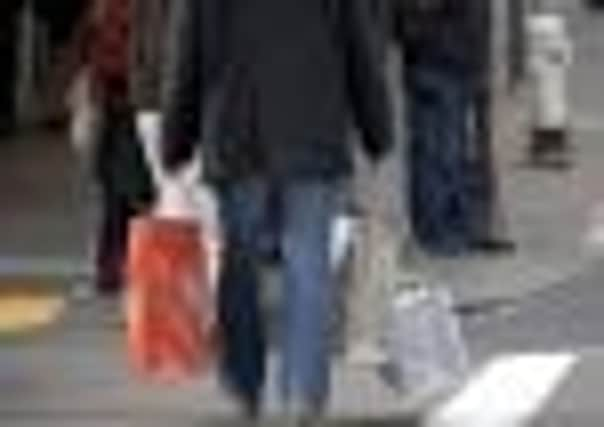George Kerevan: Not – quite – all doom and gloom for retailers


It is also a good pointer to next Wednesday’s first-quarter GDP figures, which should remain on the growth side of the ledger.
These latest numbers are in sharp contrast with the previous month, which showed a bump in retail sales. I said at the time I thought the February figure was rogue. I remain convinced that the great British public are back in spending mode despite austerity. Ditto America, where the March retail sales figures were also above forecast.
Advertisement
Hide AdAdvertisement
Hide AdIf there is a threat to consumer confidence in 2012, it comes from inflation. In March price rises jumped to an annualised 3.5 per cent on the CPI index on the back of dearer petrol and food. These figures knock on the head the Bank of England’s contention that inflation will come down to 2 per cent this year. The Bank’s inflation forecasting is either deliberately misleading (to reduce the real value of the National Debt) or plain incompetent. Take your pick.
The main drivers of consumer spending are jobs, wages and house values. UK unemployment fell in Q1 for the first time since May 2011, down 35,000 due mainly to a pick up in part-time jobs.
That’s anaemic but at least it puts more money in peoples’ pockets. Average pay rises are running at an annualised 1.1 per cent, well below inflation. House prices are up barely 0.3 per cent on the year, according to the Office of National Statistics. Put together, these numbers are hardly an indicator of strong consumer confidence. This suggests that, while consumers are fed up with austerity, their spending will continue to be volatile and responsive to short-term factors.
For instance, the March spike in sales volumes had a lot to do with the good weather – we feel better and get out more.
Not to mention the panic petrol buying.
This scenario suggests impulse purchases that are difficult to predict. Marks & Spencer, the UK’s biggest clothing retailer, has had two poor quarters in a row because it misjudged consumer demand. Before Christmas it failed to stock enough low-priced women’s wear, as consumers skimped till the January sales.
Then in the first quarter of 2012, M&S did not have enough higher-priced winter fashion goods to meet demand.
Lesson: there are still profits to be made in retailing. But reeling them in is not going to be business as usual. Ask Tesco.
Socialist victory could benefit Arsene Wenger
TOMORROW sees the first round of voting in the French presidential election. If the polls are correct, Francois Hollande, the Socialist Party candidate, should beat the unpopular incumbent, Nicolas Sarkozy, in the second round on 6 May.
Advertisement
Hide AdAdvertisement
Hide AdOstensibly, Hollande is anti-austerity. He intends to put up income tax to 75 per cent for top earners to finance a growth strategy. He also wants to revise the EU fiscal stability pact to put the emphasis on expansion, much to the annoyance of Berlin.
I’m betting Hollande’s stance is for domestic political consumption and that he is not going to rock the euro boat.
As it is, the premium on French ten-year paper over German bunds went above 1.5 percentage points this week, on fears of a Socialist win.
So expect President Hollande to fall into line, with Berlin agreeing a fix whereby the European Investment Bank gets re-capitalised to invest more in depressed southern Europe.
However, Hollande remains committed to a devaluation of the euro against the dollar, and the Chinese renminbi, to boost European exports. This could be construed as interfering with the independence of the European Central Bank, and cause a genuine clash with Berlin and the ECB president, Mario Draghi.
In the UK, one consequence of a Hollande victory might be an influx of French expats escaping higher taxes. Knight Frank, the property consultant, reports a 19 per cent increase in online enquiries from France by potential buyers seeking homes in London.
They include 150 of France’s top football players. What’s bad news for French millionaires could be good news for Arsene Wenger.